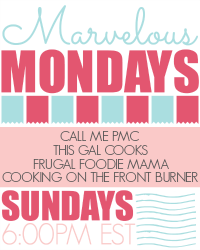Caring.com shared a list of things that caregivers can get caught up in. We all know we care about our family, be it caring for elderly parents or a special needs child. Every once in awhile though we can get caught up in their life, making ours take a back seat. Totally understandable but we tend to forget - it is OK for us to have a life, get some of our likes, interests, friends, etc back to enjoy.
Take a look at their list and see how many you answer 'yes' to. Then take some time to carve out for yourself and tell yourself it is all right to have a life separate from those you are taking care of.
1 - You use words like "always" and "never" with regard to caregiving. You always have to be there or do something, no one else can. Watch out for burnout.
2 - Your friends seem to have stopped calling. Maybe you constantly turn down invitations because you feel the need to be by someone's side 24/7. Or maybe your conversations with people always revolve around caregiving duties. Take time with friends to clear your mind, get back to your interests, laugh some, drink some wine and laugh some more.
3 - You have a hard time remembering the last time you were happy. Do you feel overwhelmed? Can't find anything in the day to make you happy or smile about? You need to find something to give you the 'warm & fuzzy' feeling inside.
4 - Everyone assumes you will step forward to help. No one else steps forward because you are the one always doing something. Ask for help; unfortunately people will take advantage of your good nature if you let them. As someone once told me, "don't expect much from people and you won't be disappointed". Caregiving can be overwhelming and people know their lives will change big time so they don't want to get involved. Ask anyway!!
5 - You are overweight or out of shape. You need to take care of yourself first in order to best take care of someone else. Make sure yout eat well, take a walk, get enough sleep (your family member naps, you nap -- just like when there were babies around). When it comes to your well-being, be selfish.
6 - You can't remember the last time you took a vacation. Even if it is overnight somewhere local, take some time away. Have a relative or friend stay with your family member, check into respite services, call some assisted living communities in your area, some may take people in for a weekend while family takes a break. Check into 'short term stays', like this one.
7 - Your conversations always are about caregiving. See # 2. You need to get out!!
8 - You have no hobbies. Maybe it can be something you can do with your family member like baking, knitting, sewing, or scrapbooking (which has wonderful contributions for the elderly parent too), but also allow yourself break time - read a book, see a movie, go shopping. Get the grandchildren to come over and entertain.
9 - You can't sleep through the night. It may be because the elderly parent doesn't sleep and keeps you up. Maybe it is just stress or you are not feeling well. Somehow you need to get some rest. Here again, take a night off, try meditation.
10 - You dread waking up in the morning. If you feel spent and 'heavy hearted' as the article says, you need to get help. No one can be expected to do things all by themselves for a long period of time. "Nobody, not even the most well-intentioned, big-hearted, and selfless among us -- is meant to endure a tough situation all alone, day after day, year after year."
To read the entire post, click here.
Sharing information & services we use for our special needs child, Will, and our elderly parents. Exploring more services & inviting others to share their stories with us.
Showing posts with label assisted living. Show all posts
Showing posts with label assisted living. Show all posts
Friday, February 28, 2014
Thursday, November 7, 2013
Assisted Living the Way to Go??

(picture from 'A Place for Mom')
'A Place for Mom' awhile ago had an article about 7 things to think about if you are considering assisted living for an elderly parent. Assisted living came about a couple of decades ago - to make nursing homes not so institutional looking. They suggest you consider the following when looking at a facility: ( a quick review )
* Facilities offer several levels of care. Although regulated in all 50 states, there is no nationwide definition. Some provide light care while others can help those who are bedridden - it apparently depends on the communities' licensing.
* Every community is unique in its look & feel. They come in all shapes and sizes and designs. Some have a more quiet home feel while others are more socially active. Just because 2 look the same does not mean that they 'feel' the same.
* Pets may be Ok to bring. We keep hearing about pet therapy and how it can work wonders for the elderly population. So check with each facility to see about dogs and cats or birds and fish. Again, the communities' policies will vary.
* Assisted living costs may be lower than you think. According to the 2012 Cost of Senior Care Survey, the national average rate for a one-bedroom apartment is approximately $3,300 per month. While 86.2% of assisted living residents pay from their personal financial resources, 41 states offer “home and community-based waivers” that allow low-income residents to live in assisted living. More seniors are purchasing long-term care insurance to help plan for and finance their long-term care needs. Wartime veterans and their spouses may eligible for VA benefits known as Aid and Attendance that can offset the cost of care. A Place for Mom’s Guide to Financing Senior Care has details about creative financing plans that can make care affordable as well. Those with low income and assets may to need use Medicaid to pay for senior care. To explore this option, contact your local Area Agency on Aging Office, which can be located at www.eldercare.gov.
* Assisted Living is not the same as a nursing home. Best to have a medical professional evaluate your parent but there are some distinctions between these 2 types of facilities:
Assisted living residents are mainly independent but may need help with some daily living personal care tasks such as bathing and dressing, while nursing home residents tend to need 24-hour assistance with every activity of daily living.
Assisted living residents are mobile, while those who are bed ridden require nursing homes.
Nursing home residents generally have a single or semi-private room, while assisted living residents typically live in a studio or one bedroom apartment.
Nursing home residents require fully staffed, skilled nursing medical attention on a daily basis, while assisted living residents are more stable and do not need ongoing medical attention. (Medical care is distinct from personal care. For example, helping a resident toilet is considered personal care, while care for tracheotomy would be considered medical.)
* Many communities are catering to diverse cultures. They have communities that have residents from the same culture, while adhering to their needs of their language, foods, religion, holidays.
* Offering dementia care. Some in the early stages can live with the other residents but when they get worse, there is a specially designed area of the community with trained staff for their comfort and safety.
Take your time looking around and consider these differences. Be sure to ask questions of the staff while there. See under my topic of "Quest Speakers" -- a friend who is a Registered Nurse at a local private community wrote about what questions to ask when looking at a facility. That way you will have all the best information to make a good decision regarding placement.
Wednesday, May 22, 2013
Respite Care - A Service That Could Be Used More.
 (picture froma Place for Mom website)
(picture froma Place for Mom website)With summer coming fast and schools closing for a break, families are thinking about vacations. Many families can just leave when they have their vacation weeks and not think too much of it. Now there are many families that have someone who is a caregiver, usually for an elderly parent, and they cannot leave as easily as they could before. Sometimes the parent(s) can still travel so that can be both a blessing and a daunting thought since now the caregiver has to pack and plan for an extra person who may have medical needs and may not move as fast as the rest of the family. Mom traveled with us when she was slowing down and we just had to plan differently -- like how many more bathroom stops will it take us and how much longer the trip will be, making sure she had all her medication, taking doctor phone numbers, etc. Frank is hoping to take his parents to a family wedding out-of-state soon; he now has to plan for extra luggage, stops, possibly a type of handicapped lodging, handling medications, doctor information, etc.
"A Place for Mom" states that:
According to the Center for Disease Control caregivers often pay a high toll for their labor of love:
35% of caregivers have difficulty finding time for themselves.
29% experience emotional and physical stress from their role.
54% said their health has gotten worse due to caregiving, and has affected their ability to give care.
29% have difficulty balancing work and family responsibilities
Studies from the National Alliance of Caregiving and AARP show that a lot of caregivers do not want to say they need a break, only 12% of caregivers take advantage of this. California State University San Bernardino designed a questionnaire to see if someone needs a break.
Sometimes assisted living communities offer respite care - both long term (vacations) or short term (enough time to run errands). Not only is this good for a change but now you have the opportunity to check out communities should your loved one need to move into a more secure location. The National Respite Network suggests that caregivers take this service earlier than later, that it is best to take advantage of this before becoming overly stressed or tired. "Respite will be most helpful if you use it before you become exhausted, isolated or overwhelmed by your responsibilities.” You can also use respite if the main caregiver falls ill, business travel comes up or some weather type of factor.
Communities already offering respite care say that they try to make it easy for someone to sign up and take advantage of the service - usually short forms or a package that is easily filled out.
Of course, you can always contact "A Place for Mom", "A Place for Dad" (the same as mom) for help.
Subscribe to:
Posts (Atom)
Popular Posts
-
I received a letter from our healthcare provider offering a special service through Social Security. We are in the process of filing for SSI...
-
As Advent starts, our church parishoners carry on a 'tradition' if you will (we have been doing this for about 4 - 5 years), of hono...
-
(picture from ROS site) The ROS Play Therapy System now has Elvis on its variety of games designed for those disabled with Alzheimer's, ...
-
My wife Linda started this blog last month and I want to let her know how proud I am of her, that she is sticking with it. She does ask me t...
-
Your Mother carried you inside of her womb for nine whole months, she felt sick for months with nausea, then she watched her feet swell and ...
-
I found this list that someone sent me about a year ago (so I don't know what still is included or if any percentages have changed) but ...
-
(picture from The Mother of Life website) The following was written for us by a friend, David O'Connell, who runs ' The Mother o...
-
I was talking to someone the other day and our conversation centered around one of their parents being in a nursing home and having problems...
-
I finally had lunch with my uncle, who also happens to be the last one I have. He has been struggling with cancer and its treatments for sev...
-
I was sitting in the doctor's office with my youngest, checking to make sure he just had a stomach bug/virus, when I saw this article in...
4 Signs of Caregiving Stress Overload
ElderCarelink email posts 4 signs that should not be overlooked by you, the caregiver, or a close family member or friend. They report that even though the immediate caregiver may not be helping in direct care, the mind is never far from the needs of the older person, thinking about meals, falling, medications. Take the opinion of a family member or friend if they are telling you that you are stressed. Four signs: you skip your own physicals; you isolate yourself from others; you eat and/or drink too much for good health; you are short tempered with the elder, your spouse or your children. If any or all of these sound familiar, take a break no matter how short in order to recharge. For more information on caregiver stress see ElderCarelink
Ranting
You can check out my ranting and stream of consciousness writing about looking at adult service providers with Will.
A Caregiver's Poem
I was looking through a 'Caregiver's Blog: Senior Care Support' and came across a poem that was shared by a writer, Dana, from the blog. The poem was written by Becky Netherland and Dana's grandmother shared it with her. I thought it was great and there is not much to say about it - just read!!! Enjoy!!
(picture from Caregivers Blog)
I’ve traveled paths you’ve yet to walk
Learned lessons old and new
And now this wisdom of my life
I’m blessed to share with you
Let kindness spread like sunshine
Embrace those who are sad
Respect their dignity, give them joy
And leave them feeling glad
Forgive those who might hurt you
And though you have your pride
Listen closely to their viewpoint
Try to see the other side
Walk softly when you’re angry
Try not to take offense
Invoke your sense of humor
Laughter’s power is immense!
Express what you are feeling
Your beliefs you should uphold
Don’t shy away from what is right
Be courageous and be bold
Keep hope right in your pocket
It will guide you day by day
Take it out when it is needed
When it’s near, you’ll find a way
Remember friends and family
Of which you are a precious part
Love deeply and love truly
Give freely from your heart
The world is far from perfect
There’s conflict and there’s strife
But you still can make a difference
By how you live your life
And so I’m very blessed to know
The wonders you will do
Because you are my granddaughter
And I believe in you.
Post Pictures
All pictures, unless otherwise identified, are from 'Clipart'.
4 Seasons Blog Hop
 ">
">
Labels
A Place for Mom
(3)
adaptive equipment
(1)
adopted
(1)
adult services
(2)
Alzheimer's
(14)
apps
(1)
assisted living
(3)
autism
(4)
babies
(1)
cancer
(1)
Caregiver
(13)
caregivers
(13)
caregiving
(5)
CareNovate
(2)
caring for parents
(1)
Caring.com
(6)
chemo
(1)
CT
(1)
death
(1)
deformity
(1)
dementia.
(5)
disability
(5)
disabled
(5)
down syndrome
(1)
Downs Designs
(1)
early intervention
(2)
elder abuse
(1)
ElderCarelink
(3)
elderly
(18)
elderly parents
(24)
falls
(1)
health care
(2)
incontinence
(2)
iPad
(4)
Mayo Clinic
(1)
Medicaid
(8)
medical
(2)
medical information
(1)
Medicare
(8)
memory
(6)
Memory and Aging
(1)
mom
(1)
mother
(1)
MRI
(1)
nursing home
(3)
parent
(1)
Parkinsons
(4)
PCA
(1)
PET
(1)
presecriptions
(2)
respite
(1)
seniors
(2)
SIS
(1)
social media
(1)
special education
(3)
special needs
(13)
SSDI
(1)
SSI
(6)
therapy
(1)
Transition
(6)
VA
(1)
veteran
(1)
VNA
(1)
Will
(4)





















